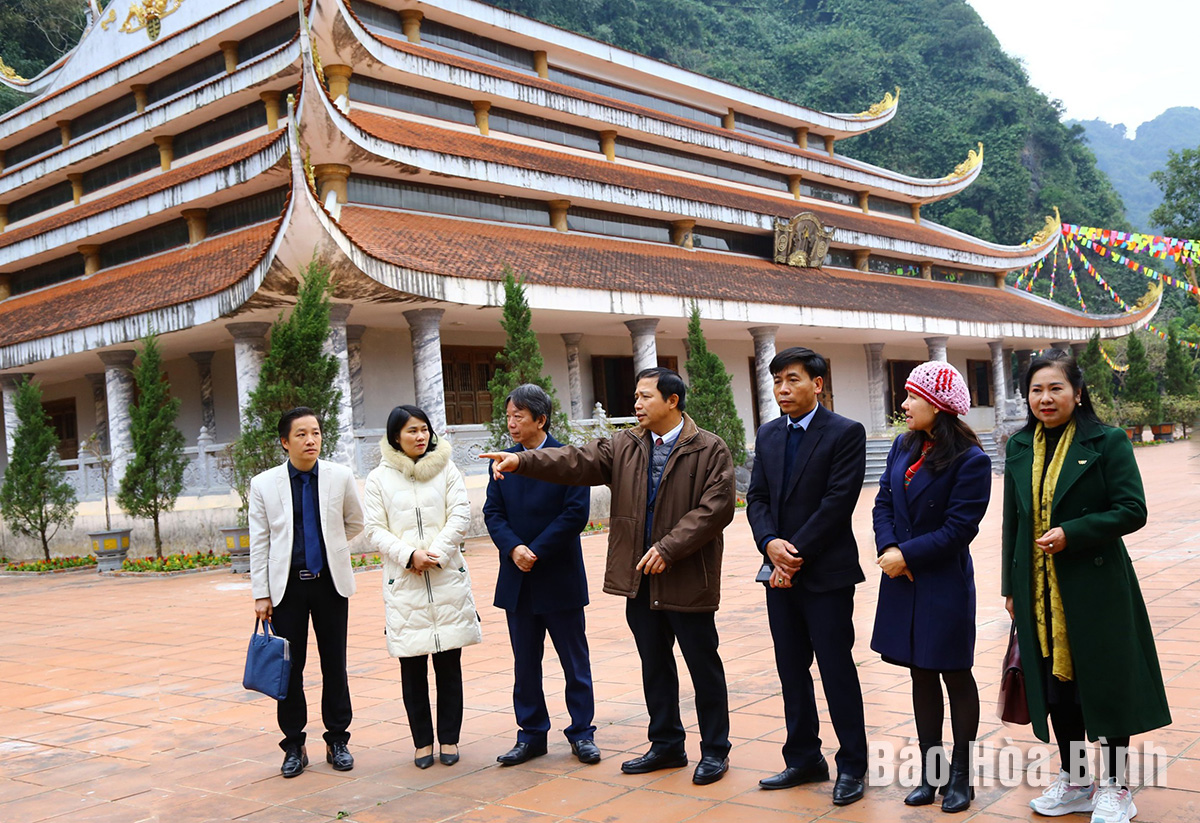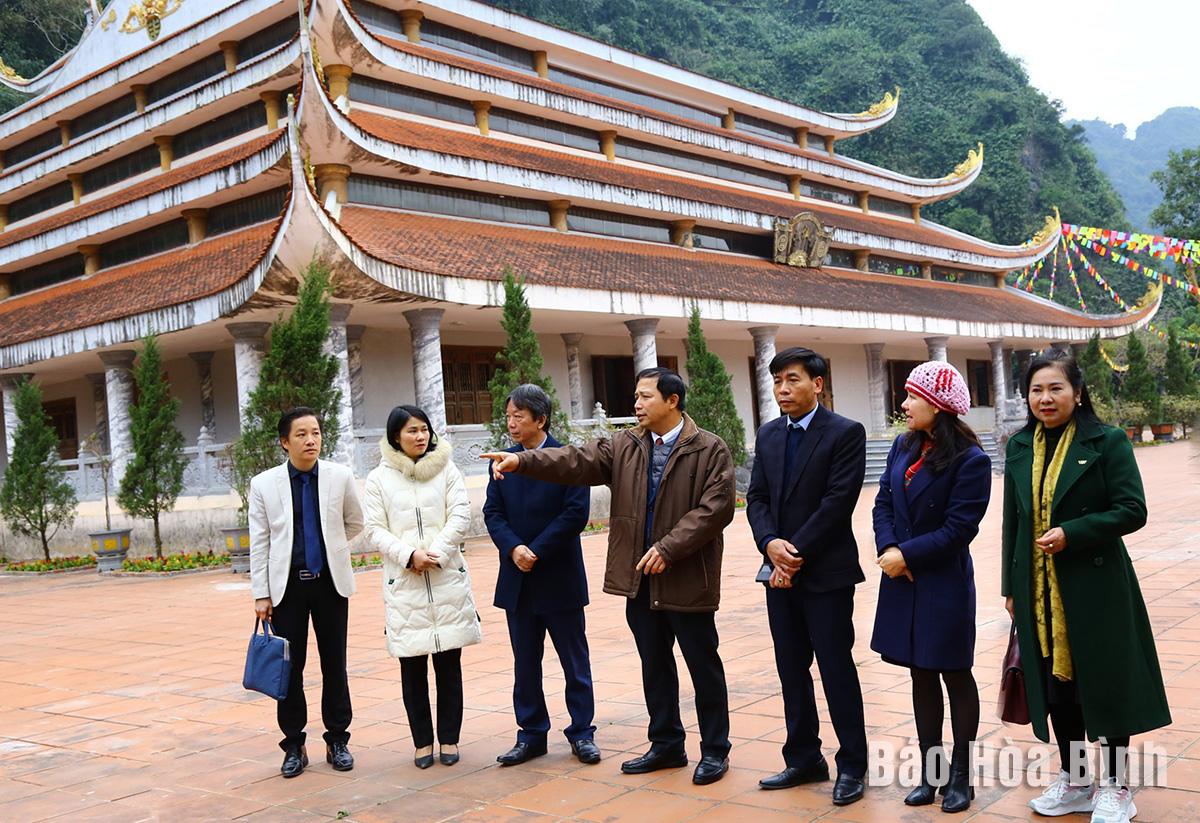
The Tien pagoda festival in Phu Nghia commune, Lac Thuy district will be held as a provincial-level event from February 12-14, said Vice Chairman of the provincial People’s Committee Nguyen Van Toan.
Vice Chairman of the provincial People’s Committee Nguyen Van Toan and local officials direct preparations for the Tien pagoda festival.
Toan, who is also head of the festival organising committee, said that the Tien (Fairy) pagoda festival is a cultural and folk belief activity that is restored and held annually to preserve, promote the traditional cultural values, and meet the spiritual needs of people. It also contributes to promoting the great solidarity among ethnic groups and boosting tourism of the district and Hoa Binh province.
Regarding the festival organisation this year, the provincial official said that an incense offering ceremony will take place on February 12 morning (the third day of the lunar year) and a ceremony on the afternoon of the same day with rituals asking local gods for permission to open the festival.
On February 13, the festival will officially start with palanquin processions: the procession of the Three Monsignors from Trinh Temple; the Procession of the Holy Mother's palanquin from the Thanh Mau Temple; the Procession of the palanquin of the god worshipped in the communal house from the Trung communal house. They are followed by the official festival opening ceremony with numerous activities such as musical performances, lion/ dragon dancing, stilt walking, bamboo dancing, and the Muong Gong ensemble.
Festive activities include folk games, and volleyball friendly matches among teams from districts of Yen Thuy, Kim Boi, Lac Son, Tan Lac and Lac Thuy.
Visitors can also enjoy a folk art exchange programme featuring ethnic musical instruments, Muong gong art performances, folk singing and demonstrations of the belief of worshipping the Mother Goddess of the Three Palaces by artisans from Trinh temple, Mau temple, and Tien pagoda.
Within the framework of the festival, a spring fair also takes place with over 40 booths that offer agricultural products, handicrafts, One Commune-One Product (OCOP) products, and local food.
With an increasingly vibrant and widespread emulation movement aimed at building cultured residential areas and cultured families, Yen Thuy District has been making steady progress toward improving both the material and spiritual well-being of its people, while fostering a civilized, prosperous, beautiful, and progressive community.
Once lacking recreational spaces and community facilities, Residential Group 2 in Quynh Lam Ward (Hoa Binh City) has recently received attention for the construction of a new, spacious, and fully equipped cultural house. The project followed the model of state support combined with public contributions in both labor and funding.
The "All people unite to build cultural life" movement, which has been effectively integrated with Kim Boi district’s socio-economic development goals, is fostering a lively spirit of emulation across local residential areas, hamlets, villages, public agencies, and enterprises. In addition, through the initiative, traditional cultural values are being preserved and promoted, while community solidarity and mutual support in poverty reduction and economic development are being strengthened.
A working delegation of the Hoa Binh provincial People’s Committee led by its Permanent Vice Chairman Nguyen Van Toan on June 11 inspected the progress of a project to build the Mo Muong Cultural Heritage Conservation Space linked to tourism services in Hop Phong commune, Cao Phong district.
Born and growing in the heroic land of Muong Dong, Dinh Thi Kieu Dung, a resident in Bo town of Kim Boi district, in her childhood was nurtured by the sweet lullabies of her grandmother and mother. These melodies deeply imprinted on her soul, becoming an inseparable part of her love for her ethnic group's culture. For over 20 years, this love for her hometown has driven Dung to research, collect, and pass down the cultural values of the Muong people to future generations.
In the final days of May, the Ethnic Art Troupe of Hoa Binh Province organized performances to serve the people in remote, mountainous, and particularly disadvantaged areas within the province. These were not just ordinary artistic shows, but they were the meaningful journeys aimed at spreading cultural values, enhancing the spiritual life of the people and contributing to the preservation of ethnic minority cultural identities.



